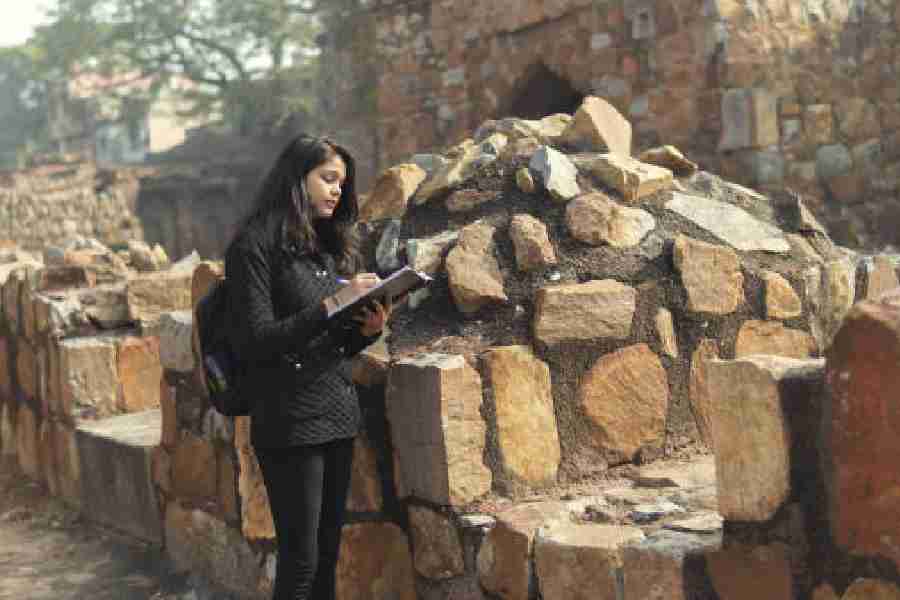Learning curve: Future in the Past


The current age is one of technological wizardry. Smartphones, sophisticated microchips, high speed wi-fi connection and artificial intelligence (AI) are all-pervading, giving an impression that the world full of knowledge is at our fingertips. So, who needs to study a discipline like history, seemingly boring and irrelevant? To a lot of young people aspiring to build careers in technology, science, medicine or commerce, history is all about rote learning — names, dates, and places of battles won or lost.
And yet, they cannot be blamed for this perception. Many of them possibly did not have the opportunity to experience a well-told history lesson, which can be a beautiful thing.
Ignoring history is not an option ever, and certainly not in the times in which we live. History, just like art and entertainment, can serve an important purpose, not only in the aesthetic sense, but also at the level of human understanding. To make history fascinating you need good textbooks, well-made films and documentaries that tell the story of the past in its totality. History isn’t black and white and shouldn’t be represented thus. There are many nuances and layers.
A case in point would be the history of Partition. You cannot tell it in a simplistic way, blame some and praise some, make random omissions and commissions. You cannot blame any one person or community for the mayhem and mass killing or mass migration that followed. But Partition history has not always been represented in an objective manner. Its long shadow still looms large on Indian politics, in the culture of identity politics, in defining the rights of citizenship of the refugees and in the stateless status of some marginal communities.
A comprehensive reading of history can reveal a full understanding of a given epoch, situation, crisis or turning point. It makes one rethink simplistic labels such as heroes and villains, to name only a few things. One can identify more clearly “errors” of the past. Future administrators, leaders, policy-makers can even benefit from that hindsight — should they want to, of course. The converse is also true; individuals with little or no knowledge of history are oftentimes easy to prejudice, easy to sway and easy to play one against the other, in big and small situations.
In India we have grown up reading a lot of colonial historiography compiled by the British. Since they were mostly civil servants, they put a lot of emphasis on measurements. They measured land, they also measured people based on religion, caste or creed. That kind of historiography comes with its own positives and negatives.
I strongly believe that students, irrespective of discipline, even those pursuing science and technology, must study history.
The modern ways of teaching history are scientific. You learn to assess evidence that will help you approximate a clear picture of the past. You learn to interpret past events, including statements of political leaders, and also how to analyse the behaviour of current leaders. You also learn to judge various types of evidence — public statements, archival sources, private records, numerical data, visual materials, oral narratives and so on — to develop your own argument. You’ll be able to assess conflicting interpretations and develop critical thinking skills. Consider the past as a huge laboratory of human behaviour that offers you clues to analyse ways to develop a better future.
Finally, remember that history teaches you to be a good citizen by shaping and sharpening your political intelligence. Our Constitution offers young people the right to vote as soon as they are 18 years old. The right to vote brings with it its fair share of responsibilities. Knowledge of history can help you become a well-informed citizen, who can tell whataboutery from facts. Being well-informed is important because it helps you play an active role in the political forum through educated debates and offer informed consent to a particular political party.
No political party can dupe or mislead you — certainly not easily — with a narrow agenda if you have a thorough understanding of what it is that has led to the current situation. History provides a storehouse of data or evidence to understand the given situation and gives you a perspective to understand prospective changes.
Unfortunately, since most young voters have a poor understanding of history, they either don’t vote or don’t elect appropriate representatives. Then they go on to blame the system, the Constitution or the country. They expect more rights and a better society, but do not take their own responsibility seriously.
The bottomline: AI might be the flavour of the times, but HI (historical intelligence) is the need of all times.
The writer is associate professor of history at Diamond Harbour Women's University